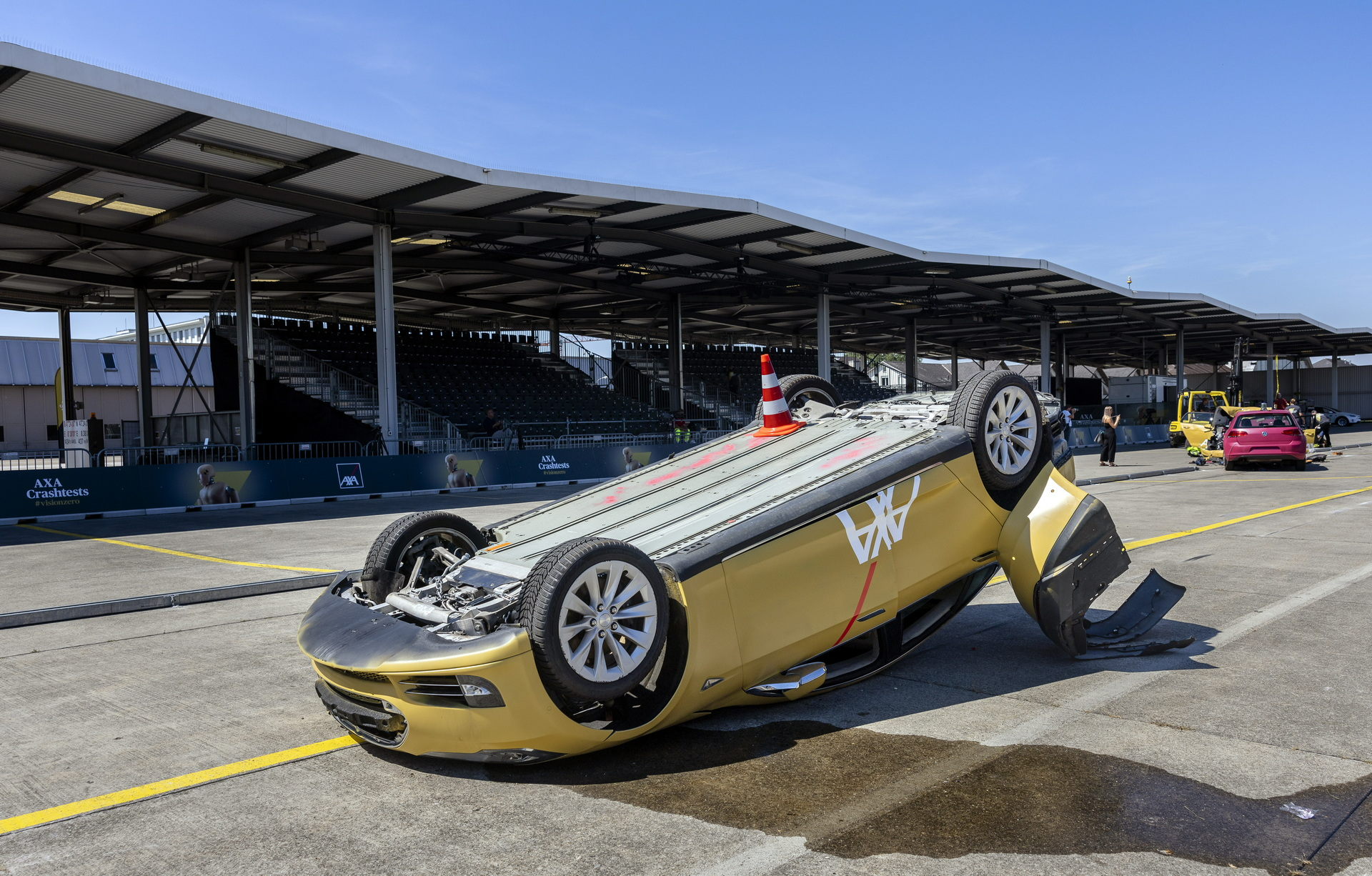A study conducted by French insurance company, AXA, has found that collisions involving electric vehicles are more expensive, cause more damage, and are more dangerous to the occupants of other vehicles.
The study looked into accidents involving EVs following its 2022 crash tests in Zurich, Switzerland, and found that EVs have an inevitable weakness in their design.

“We insurers and our customers also have to manage new risks: Although e-cars do not cause more accidents in this country, they can often lead to more expensive individual claims,” said Nils Reich, director of property insurance at AXA in Germany.
The reason the collisions are more expensive is due to the obvious fact that they're filled with expensive technology that, if damaged, can be expensive to fix. And while EVs are typically newer and feature the latest in safety technology, they also have a weakness.
Because most automakers place batteries at the bottom of the vehicle, damage from underneath the car can lead to some very expensive and at times dangerous damage.
AXA acknowledges, however, that the risk of fires in both EVs and combustion vehicles is overstated. Statistically, it found that just five of every 10,000 vehicles fall victim to fire. A different study also found that hybrid cars are the most likely to catch fire, more than combustion vehicles, with EVs having the lowest risk.
But there is one area in which electric cars are more likely to cause an accident: under acceleration. Electric motors provide a high instantaneous torque, which can lead to situations where EV drivers accelerate too quickly, take-off, and can lead to a loss of control and crash.

“Most electric cars, especially the powerful ones, have a very high torque, which is immediately noticeable when you tap the power pedal,” said Michael Pfaffli, head of accident research at AXA Switzerland. “This can result in unwanted, jerky acceleration that the driver can no longer control.”
What AXA refers to as "over-tapping" leads to 50 percent higher rates of accidents in which drivers damage their own vehicles, compared to cars powered by combustion engines.
What's more, seeing as electric vehicles inherently weigh more than combustion cars, they generate more force in a collision. AXA recommends that EV drivers take force and power into consideration when driving, to decrease the risk of causing extensive damage to their own, and other cars.







